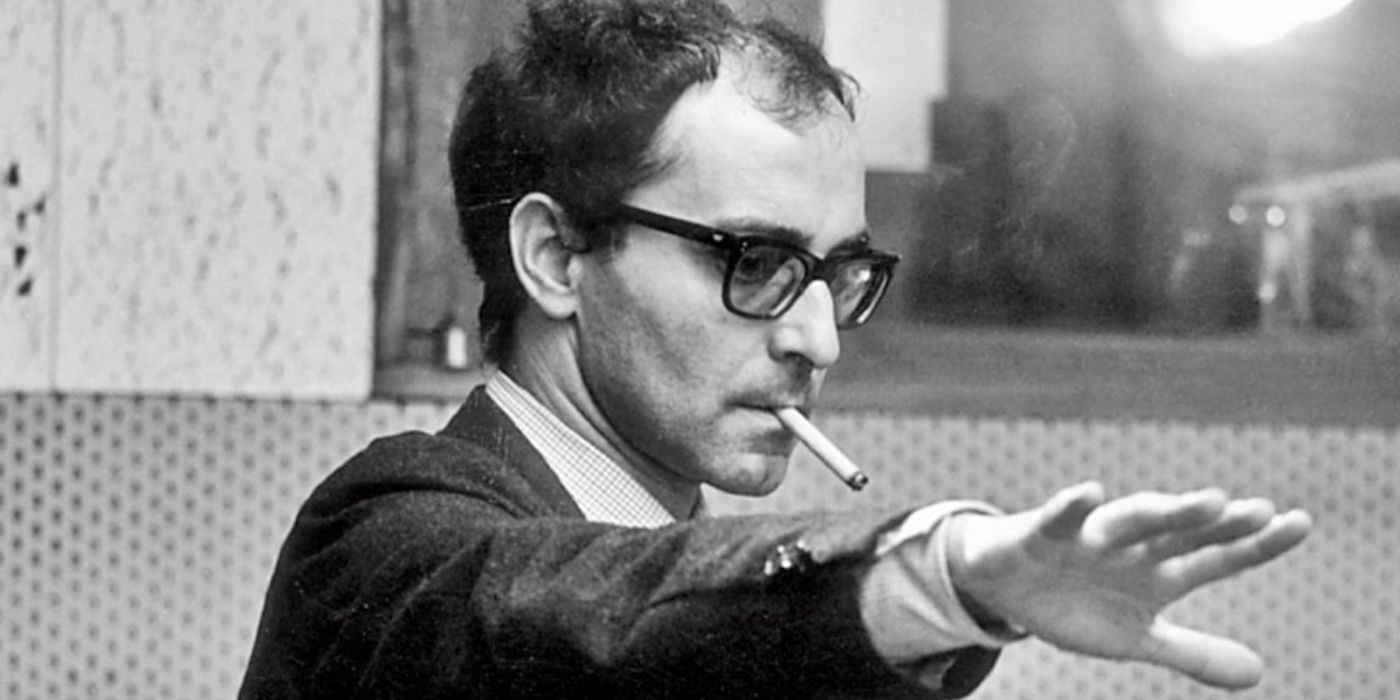Martin Scorsese pays tribute to Jean-Luc Godard following the French filmmaker's death. After beginning his career as a film critic, Godard rose to prominence during the 1960s as the driving force behind the French New Wave movement, which was defined by a rejection of traditional filmmaking techniques in favor of experimentation and iconoclasm. With films like Breathless, Alphaville, and Pierrot le Fou, Godard revolutionized popular cinema and is widely considered one of the most influential French filmmakers of all time.
SCREENRANT VIDEO OF THE DAY
A legend himself, Scorsese rose to prominence during the 1970s and early 1980s with films like Mean Streets, Taxi Driver, and Raging Bull which solidified him as a major figure in the New Hollywood era. Scorsese's success continued into the 1990s with arguably his magnum opus, Goodfellas, and his various collaborations with Leonardo DiCaprio, the latest of which is Killers of the Flower Moon. Over his long and illustrious career, Scorsese hasn't been afraid to share his thoughts on the current state of cinema, famously causing quite a stir in 2019 when he decried Marvel movies. On September 13, 2022, the industry lost a legend when Godard passed away at the age of 91, and in the following days, there has been an outpouring of love and tributes for the late director.
Now, just days after his death, Scorsese is paying his respects to Godard. In an article published by The Guardian, Scorsese penned a thoughtful and heartfelt tribute to the late French filmmaker, praising his work and explaining how influential it was to the cinematic art form. Read Scorsese's full tribute to Godard below:
From Breathless on, Godard redefined the very idea of what a movie was and where it could go. No one was as daring as Godard. You’d watch Vivre Sa Vie or Contempt or Made in USA and you had the impression that he was actually taking apart his own movie and rebuilding it before your eyes. You never knew what to expect from moment to moment, even from frame to frame – that’s how deep his engagement with cinema went.
He never made a picture that settled into any one rhythm or mood or point of view, and his films never lulled you into a dream state. They woke you up. They still do – and they always will. It’s difficult to think that he’s gone. But if any artist can be said to have left traces of his own presence in his art, it’s Godard. And I must say right now, when so many people have gotten used to seeing themselves defined as passive consumers, his movies feel more necessary and alive than ever.

Other than Scorsese, several other filmmakers shared tributes of their own. These include Call Me by Your Name's Luca Guadagnino, High Life's Claire Denis, First Cow's Kelly Reichardt, Bad Lieutenant's Abel Ferrara, Hannibal Rising's Peter Webber, and Paul Schrader, who wrote Scorsese's seminal 1976 film, Taxi Driver. Schrader's tribute to Godard was equally insightful, saying he treated cinema as "his personal Rubik’s Cube."
Thus far, Scorsese is perhaps the most legendary filmmaker who has paid tribute to Godard. His comments help verbalize just how impactful the director's films were on a spiritual level, though on a technical level, he revolutionized the art form with his unconventional narratives, editing, sound, and cinematography. Many of these techniques, which were innovative during the 1960s, seem commonplace today, but with Martin Scorsese and other important filmmakers sharing how much Jean-Luc Godard's work meant to them, audiences can further understand what the late director meant to cinema.
